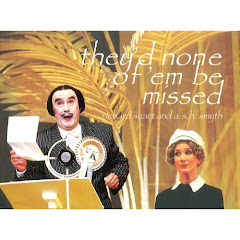One of the peculiarities of UK politics is that issues supported by hardly anyone receive majority assent in parliament. In the current system, no popular support is required. University top-up fees, for example, were rejected by the Scottish and Welsh assemblies, but Scottish and Welsh MPs were frogmarched through the lobbies to impose them on England (the government won by five votes). Foundation hospitals were voted down in both Wales and Scotland, and foisted on the English by the representatives of those nations. Had Heathrow's third runway been debated only by English MPs, the proposal would have been resoundingly defeated; it was approved by 19 votes, after 67 MPs from the other nations were induced to support the government. They can support such measures without any electoral risk, as their constituents are not directly affected.Amnesiac interpretation: We are being royally rogered, if you consider the whole Crown-in-Parliament thing.*
*This is a really annoying clever-dick joke for which I humbly apologise.**
**I also never use the word 'humbly'.***
***And what's with all the footnotes? I'm turning into my fellow amnesiac.






No comments:
Post a Comment